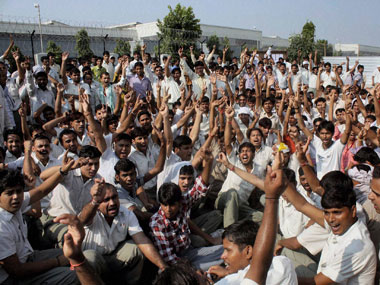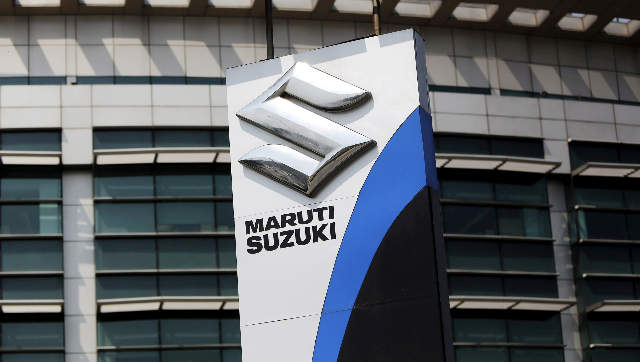Workers at three factories operated by two different subsidiaries of Suzuki Motor Corp in India called off their two-day strike this morning after an agreement was reached with the management of the companies. However the unions at Suzuki did not specify whether the standoff at Maruti’s Manesar plant, which began on 29 August, has been resolved.
Maruti Suzuki, the market leader in India’s domestic car segment, has taken a beating on the performance index in the past month. Rising costs, competition, overhang from production issues and the labour unrest have dented the company’s share price, which is down thirteen percent.
Even though Maruti’s labour problem is grabbing headlines, a growing sense of disquiet in auto companies is prevalent across the country. According to a CNBC TV18 report , the problem lies in the lure of contract labour, different work conditions for temporary and contract workers and ignoring the principal of equal pay for equal work.
Honda’s two wheeler arm HMSI’s Gurgoan plant has witnessed bloody battles since 2005. In 2009 workers at Hyundai Motor India in Tamil Nadu went on an eighteen-day strike to demand recognition of the employees’ union.
Workers at tyre maker MRF’s Arakkonam unit have been on strike twice since October 2010.Other Gurgaon-based companies like auto ancillary makers Ricoh Auto and Munjal Showa have also suffered from labour unrest.
Auto companies blame the strikes on politically-invested interests. Recently, even RC Bhargava, chairman of Maruti Suzuki India, described the present stand-off as ‘political’.
However workers argue that if everyone would receive the same pay there wouldn’t be any need for an agitation or the demand for a strong union.
India Inc conveniently ignores the issue of wage parity as they employ a high percentage of contract or temporary workers at the factories.
The truth is auto makers use cheap contract labour, which often comprise more than 50 percent of the workforce, to decrease production cost. According to an industry analyst, automakers also benefit by having greater autonomy in choosing when to lay-off workers in times of a slump.
Leading auto and component makers say the ratio of permanent to temporary employees is as high as 60:40. The report cited by CNBC TV 18 says that though the wage difference between permanent and contract workers is Rs 10,000 or sometimes a little higher, the delivery expectations from the two are almost the same.
Workers at Maruti’s Manesar plant say the difference between the working conditions of temporary and permanent employees vastly differ. In fact of the 2,500 workers, only 1,100 are permanent, while the remaining are all contract workers. Apart from the salary, a contract worker is not entitled to other benefits like a bus service, paid leave, medical benefits etc. More over there is even a difference in the uniform that the two wear.
According to a report in Business Standard, even though the nature of the job for both temporary and permanent employees is almost the same, a skilled worker has to work for at least a year as an apprentice and another three years as a trainee before he is made permanent.
CNBC TV18 interviewed Shiv Kumar, a permanent worker and the president of Maruti Suzuki Employee Union, who said an unskilled contract worker is paid Rs 5,500 a month and a skilled contract worker (with an ITI diploma) gets Rs 7,000; while a permanent worker’s pay is around Rs 18,000.
Experts say that any company that wants to recruit contract workers has to first obtain a licence from the labour department, which has the right to cancel the licence, if the workers’ rights are abused. But these laws are seldom implemented.
Watch video:


)




)
)
)
)
)
)
)
)